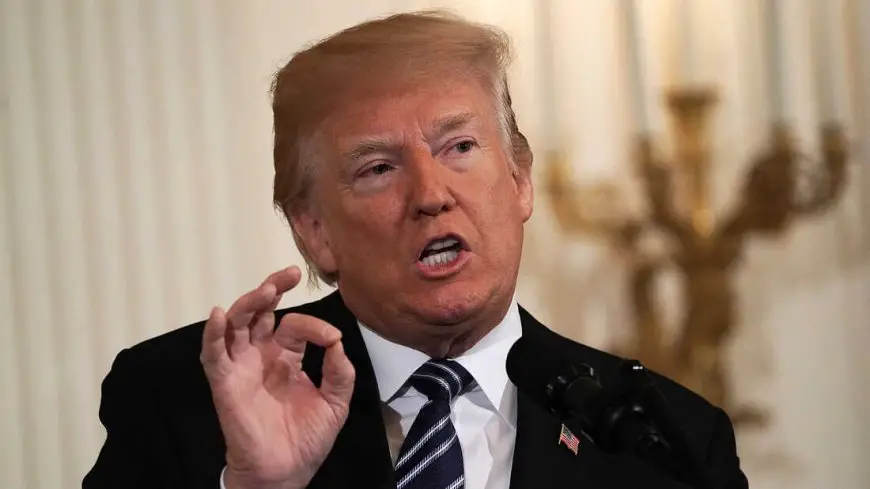Trump Demands Iran’s “Unconditional Surrender,” Signaling Possible U.S. Intervention to Back Israel
Amid escalating Israel‑Iran hostilities, former U.S. President Donald Trump has urged Iran’s "unconditional surrender," hinting at possible American military involvement to support Israel.

Trump Intensifies Rhetoric, Calls for Iran’s “Unconditional Surrender”
On June 17, 2025, Donald Trump escalated U.S. rhetoric in support of Israel, calling for Iran’s “unconditional surrender” amid intense aerial engagements between the two nations. The statement, delivered via social media, warning that U.S. patience was "wearing thin" and followed a high‑level Situation Room meeting at the White House nypost.com+15reuters.com+15ft.com+15sbs.com.au+1theguardian.com+1.
Trump declared: “UNCONDITIONAL SURRENDER!” and acknowledged knowing the location of Ayatollah Ali Khamenei, Iran’s Supreme Leader, emphasizing that while the U.S. does not plan to target him “for now,” it would not tolerate missiles launched toward civilians or American troops ft.com+9reuters.com+9theguardian.com+9.
Context: Escalation, Military Build‑Up, and Diplomacy
The Israel‑Iran air exchanges have intensified, with Iran launching roughly ten ballistic missiles toward Israel—most intercepted—and explosions reported in both Tehran and Tel Aviv reuters.com.
Trump cut short his G7 summit attendance to focus on the crisis, convening his advisors for an 80–90‑minute session. Options reportedly include U.S. airstrikes on Iranian nuclear infrastructure and deployment of naval assets like the USS Nimitz to the Gulf thetimes.co.uk.
Global Response and Political Friction
European leaders, including UK Prime Minister Keir Starmer, emphasized that there was no current indication of U.S. direct military entry, even as France’s Emmanuel Macron cautioned against regime-change strategies—arguing such moves “could lead to chaos” ft.com+1thetimes.co.uk+1.
Meanwhile, a split emerged within U.S. political circles. Figures like Marjorie Taylor Greene and Tucker Carlson warned against deepened U.S. involvement, voicing concern over departing from “America First” ideology apnews.com.
Strategic Stakes: Nuclear Goals, Military Calculation, and Regional Power Dynamics
Trump's demands reflect a continuation of his 2025 “maximum pressure” strategy toward Iran, which combines harsh sanctions with military deterrence—intended to compel Tehran to abandon its nuclear program theguardian.com+2theguardian.com+2ft.com+2.
He voiced a clear objective: prevent Iran from producing nuclear weapons entirely. Trump stated: “Iran cannot have a nuclear weapon, it’s very simple,” and emphasized that American support for Israel—military or economic—will continue reuters.com.
Analysts caution that Trump's aggressive posture—invoking “unconditional surrender”—may escalate tensions further, with potential for cyberattacks, proxy warfare, or targeting U.S. forces in the region youtube.com+10ft.com+10foreignpolicy.com+10.
What Happens Next
-
U.S. Military Options: Decision pending on whether American forces or air assets will join Israeli operations.
-
Diplomatic Fault Lines: European leaders are urging restraint and renewed focus on reviving diplomacy, echoing broader global concerns.
-
Iran's Response: Likely to include further missile launches, proxy group engagements, or cyber operations.
-
Domestic Political Fallout: Trump’s stance may deepen rifts within U.S. political coalitions over foreign intervention.
SEO and Readability Enhancements
-
Headline features primary keywords (“Trump demands Iran surrender”, “U.S. support Israel”).
-
First paragraphs include key terms: Trump, unconditional surrender, Israel‑Iran conflict.
-
Informative subheads break down coverage into context, global response, stakes, and next steps.
-
Backlinks to reliable sources:
-
Original Reuters reporting on Trump’s statement and military posture.
-
Reuters coverage on missile launches and U.S. assets.
-
European reactions in The Guardian and Reuters analysis.
-
-
Natural tone avoids AI-like phrasing, uses direct quotes and measured language.
Conclusion
Donald Trump's call for Iran’s unconditional surrender and the option of direct U.S. engagement marks a significant tonal shift in the Israel‑Iran crisis. With global leaders calling for restraint and military options under review, the situation could pivot rapidly—pushing regional dynamics to a critical juncture. Close diplomatic coordination among the U.S., Israel, and allies will be essential in the days ahead to prevent broader conflict.














